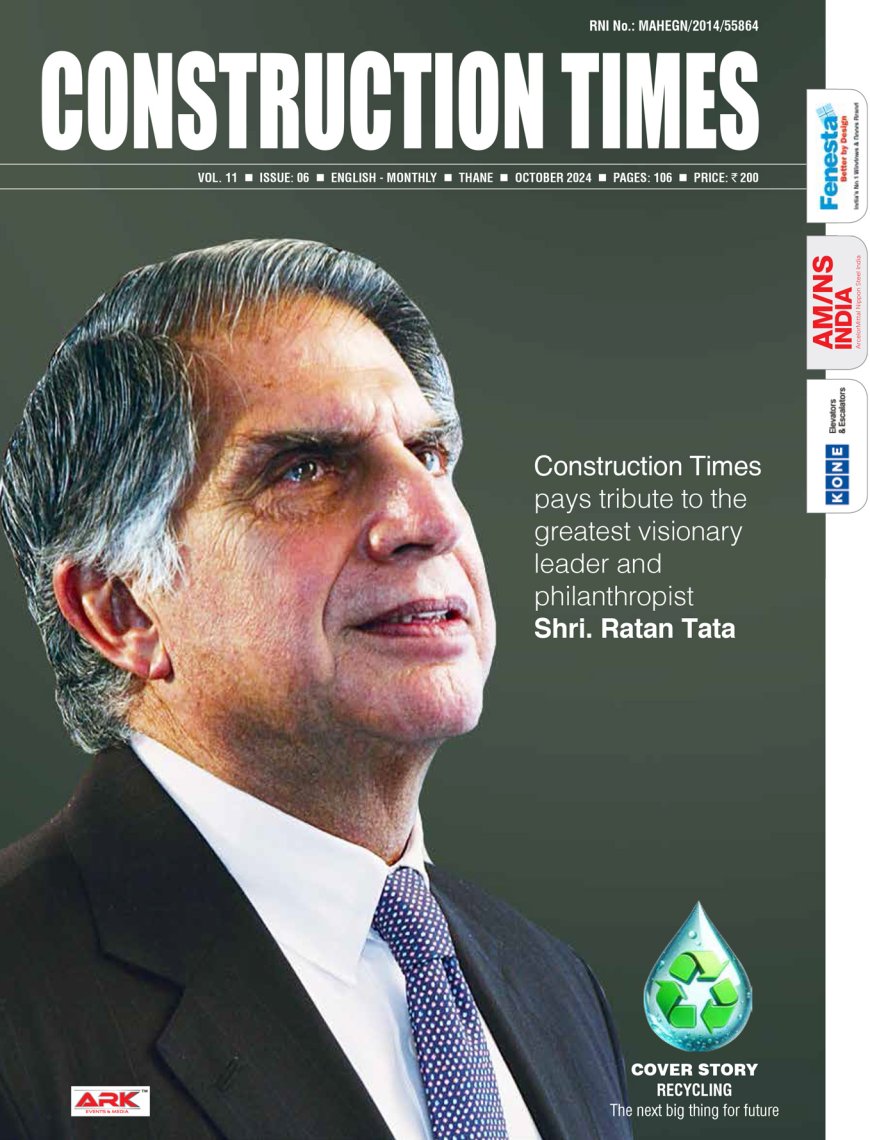We have designed a 400-bed hospital that can be built in 2 weeks.
All our buildings are factory automated, manufactured and assembled onsite. - Nejeeb Khan, Head - Design & Business Strategy in India, Katerra What is your assessment and foresight on the scope and opportunities of transforming the construction industry more automated and digitalized? Covid-19 has highlighted the need for technology in all


All our buildings are factory automated, manufactured and assembled onsite.
- Nejeeb Khan, Head - Design & Business Strategy in India, Katerra
What is your assessment and foresight on the scope and opportunities of transforming the construction industry more automated and digitalized?
Covid-19 has highlighted the need for technology in all sectors, and construction is no different. Automation and digital process in construction are crucial aspects today, especially with social distancing and work from home becoming necessities.
Today, construction technology offers builders host of solutions, including mobile apps, autonomous heavy equipment, drones, robots, augmented and virtual reality, and technology-led offsite construction factories, amongst others. Companies that have implemented construction technologies are better able to manage distance working, customer relations, people management and safety onsite. The construction industry in India, the second largest after agriculture, accounts for about 9% of India's GDP and contributes substantially to the national economy. Market expectations register a CAGR of 6% for the Indian construction sector over the forecast period 2019 - 2024. A critical problem hampering the sector's growth has been the slow adoption of technology. The lockdown across the world due to Covid-19 has highlighted the vulnerabilities businesses face in such situations if they are not technology-driven.
There is considerable scope for implementing technology in the construction sector to help fasten the entire process, improve quality, and deliver projects within projected timelines. Construction companies that adopt technology will be the real future game-changers.
What do you think are the major pain points for this transition and your suggestions to address those?
India has tremendous potential for localizing and adopting global construction technology to build faster and higher quality buildings in both commercial and residential sectors. However, the slow adoption of newer technologies has been one of the biggest challenges that the Indian construction industry continues to face. Several surveys have revealed how, over the years, real estate developers have continued to under-invest in technology-led solutions for construction, despite their acknowledgment of the many benefits that these solutions can provide to run and manage their construction projects.
At Katerra, we focus on overcoming this challenge by introducing new technologies and provide our clients with end-to-end design and construction services, all connected through robust technology systems.
What contributory role your company has been playing for this transition?
We have designed a 400-bed permanent quarantine hospital that can be built in 2 weeks. This is to show that Katerra India has the technology and expertise to build such projects in healthcare, housing, and commercial sectors if the need arises in the country. During the last few months, we have seen both China and Italy build such hospitals, and India has the same capabilities.
Since all our buildings are factory automated, manufactured and assembled onsite, maintaining social distancing and Covid practices is easier to implement. We have continued to build and deliver the KMCH (Kovai Medical Center and Hospital) expansion, which is essential as the hospital is a hub for treating Covid-19 patients in Coimbatore.
Hits: 92















